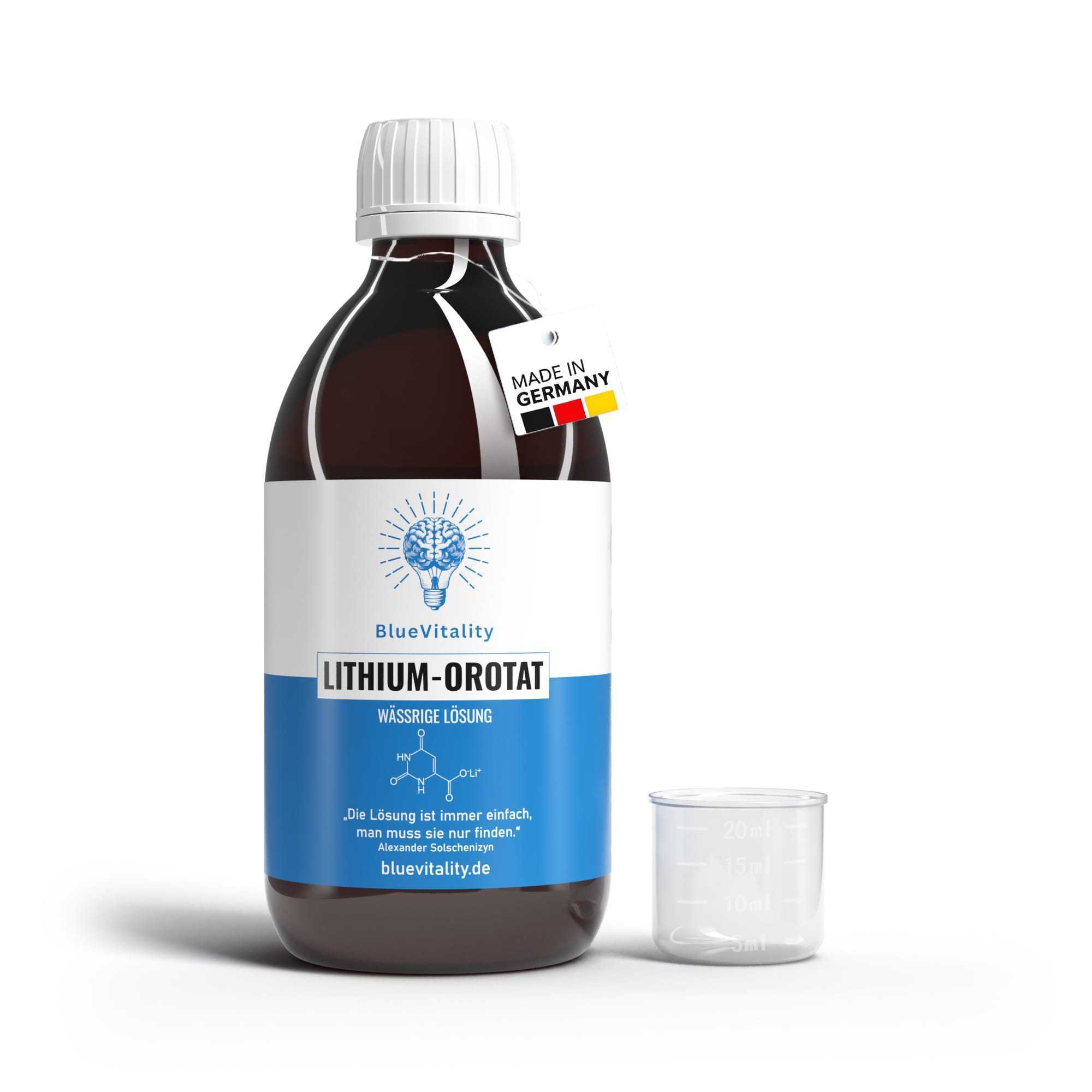Lithium orotate: A unique active ingredient with versatile applications
Lithium orotate is a special form of lithium characterized by its high bioavailability and is receiving increasing scientific attention. While lithium has been known in medicine for decades, its combination with orotic acid offers new advantages that make it interesting for various research and therapeutic approaches. Lithium orotate is being studied particularly in neurology, psychiatry, and cell biology because it represents a gentle alternative to conventional lithium salts.
Lithium orotate in neuroscience: brain protection and regeneration
Lithium is known for its neuroprotective properties. Lithium orotate shows promising effects, particularly in the treatment of neurodegenerative diseases such as Alzheimer's and Parkinson's.
Neuroprotection and cognitive health
Lithium orotate can promote neuroplasticity by increasing the expression of BDNF (Brain-Derived Neurotrophic Factor). BDNF is a protein critical for the health and growth of nerve cells. It may therefore help maintain cognitive function and counteract age-related cognitive decline.
Protection against neurodegenerative diseases
Studies suggest that lithium orotate can reduce the deposition of beta-amyloid plaques associated with Alzheimer's disease. It may also play a role in reducing oxidative stress and inflammation in the brain, contributing to slowing neurodegenerative processes.
Lithium orotate in psychiatry: mood balance and anxiety relief
A key area of research into lithium orotate is its effects on mental health. Conventional lithium carbonate is used to treat bipolar disorder, but often has side effects such as kidney and thyroid damage. Lithium orotate could represent a milder alternative, as it is reported to be effective at lower doses.
Mood-stabilizing effect
Lithium orotate shows potential positive effects on depressive states by influencing serotonin and dopamine regulation in the brain. It could help balance mood swings and alleviate depressive episodes.
Anxiety-relieving properties
Lithium orotate is also being investigated as a means of reducing anxiety and stress. It may help reduce overactive stress responses in the nervous system and increase emotional resilience.
Lithium orotate in cell biology: influence on mitochondrial function
Mitochondria are the "powerhouses" of cells, and their functionality is crucial for overall health. Lithium orotate may play a role in improving mitochondrial activity by reducing oxidative damage and increasing energy production.
Influence on cell metabolism
Lithium orotate may have a positive effect on cellular metabolism by activating anti-inflammatory signaling pathways. This is particularly important for diseases such as chronic inflammation or neurodegenerative processes.
Potential in aging research
In longevity research, lithium orotate is being investigated as a potential lifespan extension agent. It may have protective effects against cell aging and thus contribute to maintaining healthy cell functions.
Conclusion: Lithium orotate as a promising substance in research
Lithium orotate is a fascinating compound that has the potential to play an important role in neurology, psychiatry, and cell biology. Its ability to protect brain function, balance mood, and influence cellular metabolism makes it a promising research target.
While further studies are needed to fully confirm long-term safety and efficacy, lithium orotate could represent a gentle alternative to conventional lithium salts – with fewer side effects and broader therapeutic potential.





